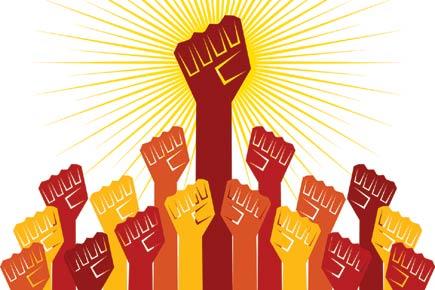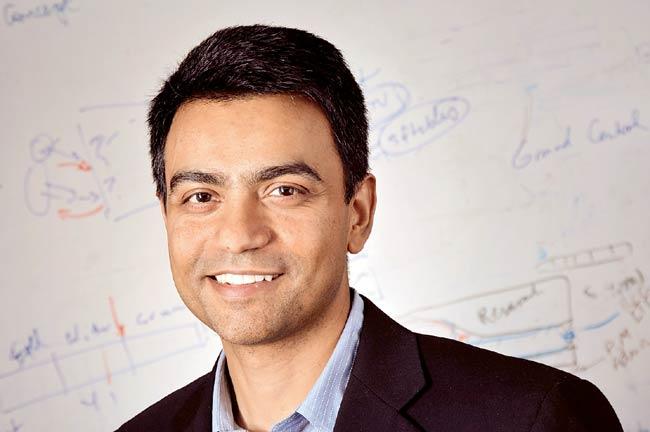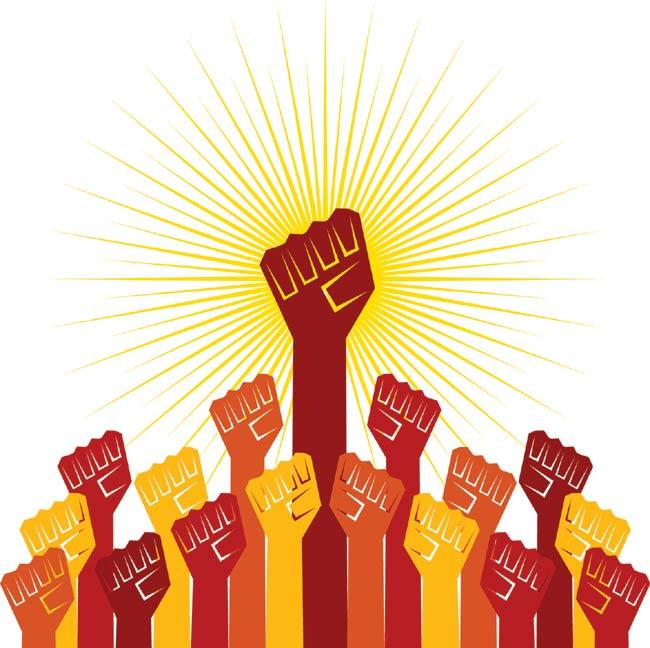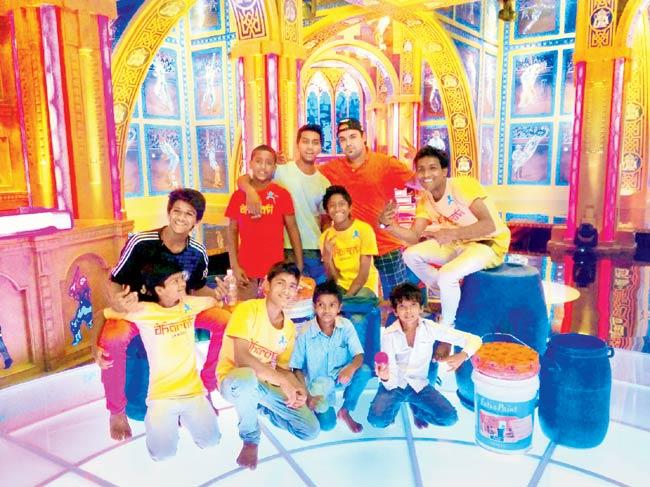INK Talks will host their 5th chapter in Mumbai, from October 31 to November 2. This year's theme is Beyond Boundaries. Listen to change-makers from all walks of life as they share ideas and perspectives in talks of 3-18 minutes. A few speakers to watch out for

Small change for a better India
Deb Roy, Cognitive Scientist; Chief Media Scientist, Twitter
ADVERTISEMENT

Deb Roy
Q. Twitter, Cognitive Science and Language Acquisition. How do the three correlate and what does your research anticipate?
A. My Massachusetts Institute of Technology (MIT) research lab formed in 2000 worked in areas of cognitive science including artificial intelligence and human language learning. We developed computer algorithms to analyse relationships between language and non-linguistic context through experiments in robot language learning and child language learning. Eventually, we applied this research to analyse the relationship between tweets (language) and television (context).

Abhijit Jejurikar, Dharavi Rocks, music band

Dharavi Rocks is a joint educational music and dance project initiated by Acorn Foundation
Q. The band has been performing together for a while now, and remains an inspiration to many. What progress have you made in terms of producing original music?
A. Our focus is to compose original songs, which are across genres but retain junk music roots. We have composed two original songs in different genres. The first: The Dharavi Rap song, has been a hit, and speaks about Dharavi’s beauty from the inside. This track has been featured in MTV Sound Trippin Season 1. We’ve performed this song with different musicians to add flavours like Jazz and Reggae to it. We will be recording this song in December 2014 with US-based guitarist Bhrigu Sahni. The song will also be part of our collaborated album.
The second track, the Internet Song, Seekho Toh Jaano, talks about the diverse uses of the Internet. It underlines the importance of the Internet for low-income communities in urban India. The video has been commissioned by Centre for Communication and Development Studies, Pune. The song is composed and arranged by me with lyrics by Pinky Poonawala and has been directed and shot by Parasher Burah. It was taught to select kids from Dharavi Rocks.
What’s fascinating is that 13-year-old Muskaan Waghela sings the female vocals; she hails from Dadar where she lives with her family in a container. I found her through a friend Natasha Parekh from mentormeindia.org. We have performed with Karsh Kale, Agnee, Indian Ocean and few international bands collaborating on their original songs.
We’ve faced difficulties like making kids understand the process of composing and arranging songs; also, to grab their attention to a tune/ song, which they have not heard before. The most important part is recording in a studio, because it’s a different ball game altogether. But, we’re getting there.
Q. Managing a group as big and diverse as Dharavi Rocks can be a challenge. How do you work around it?
A. Dharavi Rocks includes members with different personalities. The full band is aged between 8 to 17 years. The challenge is to keep them grounded, after tasting success.
It is important to make them realise that productive learning takes place, only when they value everything around, not just in their music but in life including togetherness, teamwork and hard work. Overall, this project has impacted children such that they see life from a different perspective. This is a platform to dream and achieve dreams with proper direction. During practice, I’m strict to ensure everyone is attentive. But, afterwards, I’m like a friend. I have a core group (eight members) who have been learning from me for three years now; they form a part of the growth in Dharavi Rocks.
I add new kids who’ve participated in our practice sessions or shows. I’ve also started a special batch for girls only; they will now join the band as lead drummers. I ensure that the band grows and learns in a fun-yet-disciplined environment.
Reshma Valliappan, Mental health advocate

Reshma Valliappan
Q. What made you interested in mental health rights; what will be the focus of your talk?
A. My talk will focus on challenging pre-constructions about schizophrenia using humour and sarcasm, in the hope that society breaks free from constructed notions and starts looking at the person and not the label.
My experience of mental illness led me into mental health advocacy. Severe mental illnesses such as schizophrenia are still looked down upon as a demonic possession or a medical problem. Recovery is not seen as a possibility. We live an existential and legal death, as we are not seen as equal in the eyes of the law. We are treated as non-human, non-legal entities where our rights are stripped away yet there is a requirement for us to hold jobs and maintain relationships like ‘normal’ people.
Knowing what your rights are will allow you to seek appropriate choice of treatment. This knowledge is not given to people with mental illness and their dignity is often abused. Psychiatry oppression is a worldwide phenomenon and there are cases of malpractice and inhuman methods used.
Q. What is the current scenario in India pertaining to mental health rights?
A. India has signed and ratified the UN Convention on the Rights for Persons with Disabilities (UNCRPD). Mental illness is now accepted as an unseen disability. One of the main articles is specifically ‘Equal recognition before the law’. The Constitution of India and other laws do not recognise people with mental illness as equal citizens. We cannot vote, hold office, sign a contract, marry...the list is large. These are being challenged by activists and advocates today.
Many people with mental illness are subjected to inhumane treatment. Rape, abuse and patient pimping aren’t uncommon. There are medical malpractices going on and people are not aware of their rights. However, changes are being made to see mental health from a culturally diverse perspective that requires a holistic approach where allopathy and shock treatments need not be the first option. However, the individual struggle is difficult as their choice in treatment is not considered important and laws and practices still exist today that force treatment.
 Subscribe today by clicking the link and stay updated with the latest news!" Click here!
Subscribe today by clicking the link and stay updated with the latest news!" Click here!







